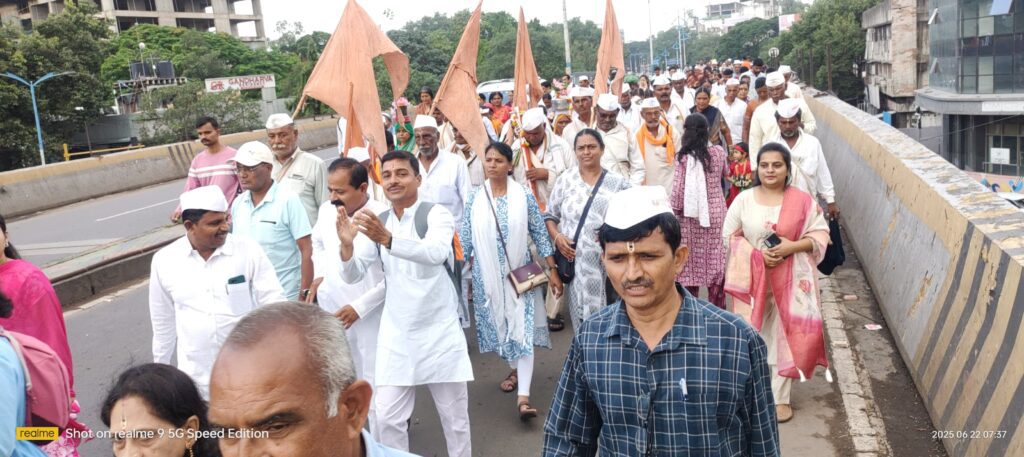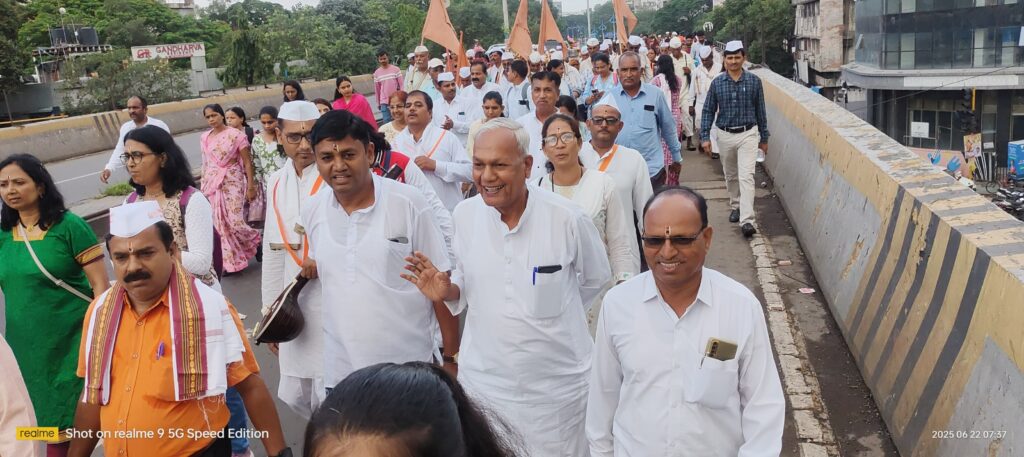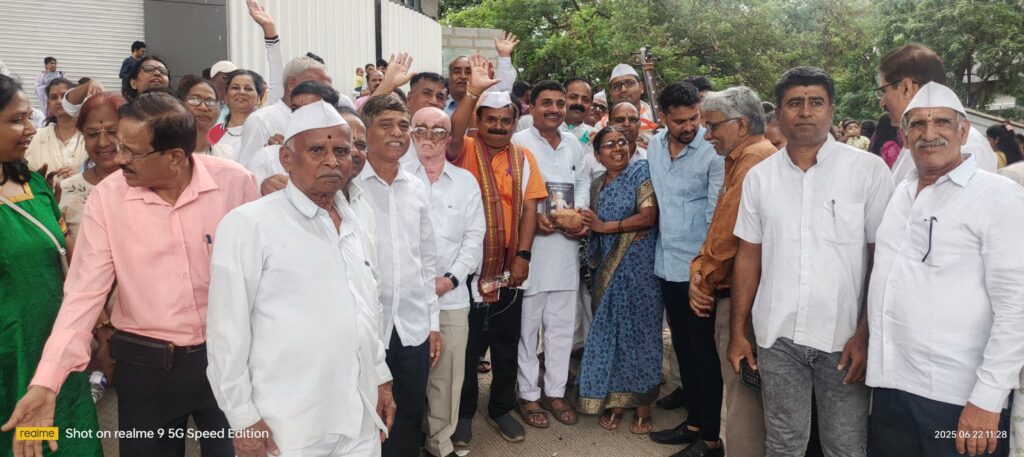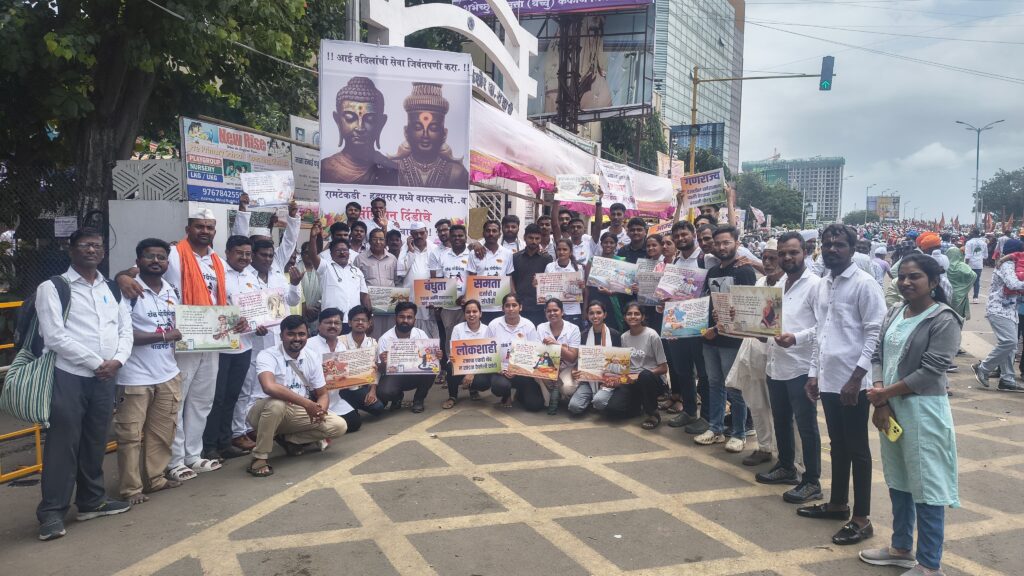Sudarshan Shinde | 27 June 2025
The Wari is not just a pilgrimage to Pandharpur – it is a living, moving expression of democracy rooted in the principles of the Indian Constitution. While it is a deeply spiritual and devotional event, it also teaches us the real meaning of equality, fraternity, and freedom of expression.
The Wari: A Social and Spiritual Movement
As Ashadhi Ekadashi approaches, lakhs of Warkaris from across Maharashtra begin walking towards Pandharpur. This is not merely a religious journey, but a social movement. People from all castes, religions, classes, ages, and genders walk together without discrimination.
The roots of the Wari lie in the Bhakti movement. Saints like Dnyaneshwar, Tukaram, Namdev, Chokhamela, Janabai, and Soyarabai not only preached devotion but also inspired social reform. At a time when caste divisions were deeply entrenched, they spread messages of love and equality.
Dr. Sadanand More says that the Wari is a network that brings people together. This connection is not just devotional – it is symbolic of social equality.

Experiencing Equality
Saint Tukaram wrote:
“The world is filled with Vishnu’s presence; Vaishnav dharma knows no division or delusion.”
This reflects the ideals found in Articles 14 and 15 of the Constitution, which guarantee equality before the law and prohibit discrimination on grounds of religion, caste, or gender.
In the Wari, there is no hierarchy. Everyone eats, sleeps, and walks together. Rich or poor, all are treated equally. The word “Mauli” connects everyone with a sense of affection and respect.
Saint Chokhamela, from a Dalit background, once asked in anguish:
“Being of a low caste, O Lord, how can I serve you?”
That pain has been addressed by Article 17 of the Constitution, which abolishes untouchability. But in the Wari, equality is not just a legal principle – it is a lived reality.

A Living Example of Fraternity
Each dindi is like a small democratic unit. Without any designated leader, people follow rules, help each other, and take collective responsibility for food, water, medicines, and rest.
Ganpati Waghmare, a farmer from Latur, says, in the Wari no one asks who belongs to whom – we just walk and take care of each other. That is the essence of constitutional fraternity.
Rajabhau Chopdhar, chief of the Dnyaneshwar Palkhi procession, says that as long as inequality exists, the Samata Dindi (Procession of Equality) is needed. The Wari is thus not only about devotion – it is a journey for justice.
Freedom of Expression
The Wari is not just about walking. It is a platform for singing, speaking, and expressing ideas. The saints’ abhangs were questions posed to the rulers of their time. They challenged injustice, hypocrisy, and casteism.
This is a direct expression of Article 19 – the freedom of speech and expression. Even today, through kirtans, bhajans, and abhangs, people raise their voices and reflect on the state of society.
Current Challenges
Though the Wari is rooted in faith, today it faces several important challenges:
- Political interference – banners, posters, and promotions dilute its sacred character
- Environmental degradation – plastic waste harms rivers and ecosystems
- Crowd management – increasing numbers pose safety and health risks
- Hidden discrimination – while everything appears equal on the surface, caste and gender biases still appear in distribution of responsibilities
The Wari is no longer just a tradition – it has become a walking Constitution. Here, constitutional values are not just written in books – they are experienced in every step.
As long as the Wari continues, we will continue to experience equality, fraternity, and freedom in the truest sense. The Wari is the real test of our democracy – calm, steady, and determined in its path.




खरंच, लेखामध्ये प्रत्येक संदेश अतिशय सुंदर पद्धतीने संविधानाशी जोडलेला आहे. संत चोखामेळ्यांचे हे वाक्य — “हीं येती माझी देवा, केसी घडे तुझी सेवा” — खूप काही सांगून जाते. अगदी वारकरी भावंडं ज्या आव्हानांचा सामना करतात, तेही खूप मांडलेले आहे. खरंच, लेखात वारीला आणि संविधानाला अतिशय सुरेख पद्धतीने represent kle आहे.